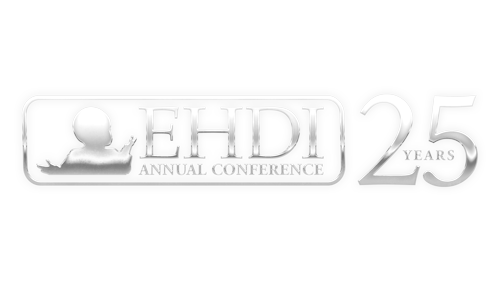2026 Early Hearing Detection & Intervention Conference
March 15-17, 2026 • Jacksonville, FL
3/10/2025 | 3:10 PM - 3:40 PM | Asking the Money Question: The Intersectionality of Money Stress and Early Supports for Families with D/HH Children | 319
Asking the Money Question: The Intersectionality of Money Stress and Early Supports for Families with D/HH Children
In this session, we will delve into the multifaceted challenges faced by parents and families impacted by money stress, whether from low socioeconomics or other financial factors. We will shed light on the critical intersections between financial constraints, access to resources, and the overall well-being of D/HH children and their families through lived experiences and a shared informal survey among parents. As noted in the National Survey of Children’s Health (NSCH), children with special health care needs experience more food insufficiency, housing hardship and medical hardship than children without special needs. National Survey of Children’s Health Data Briefs [Internet]. Rockville (MD): Health Resources and Services Administration; 2018. Material Hardship Among Children, 2022. 2023 Oct. Available from: https://www.ncbi.nlm.nih.gov/books/NBK603023/
As suggested by the MCHB Blueprint for change, we are utilizing a parent survey to gather potential solutions directly from parents, who are "valued partners in decision-making at all levels.” MCHB Blueprint for Change, https://mchb.hrsa.gov/programs-impact/focus-areas/children-youth-special-health-care-needs-cyshcn/blueprint-change
We'll share valuable insights for family support providers and healthcare professionals on the critical importance of asking questions, active listening, and addressing socioeconomic disparities where possible in supporting the holistic development, well-being and resilience of D/HH children and their families, amplifying the experience of a group of parents not often shared in EHDI systems.
- Attendees can explain how socioeconomic factors faced by parents impact access to essential resources, early intervention, and specialized education programs for D/HH children birth to age 8.
- Participants will describe potential solutions and strategies suggested by families themselves during the survey process.
- Participants will identify at least three potential best practices or resources that can increase access to needed services for their deaf/hard of hearing child.
Presentation:
3545975_18086SaraKennedy.pdf
Handouts:
Handout is not Available
Transcripts:
CART transcripts are NOT YET available, but will be posted shortly after the conference
Presenters/Authors
Sara Kennedy
(Primary Presenter), Hands & Voices, Sara@handsandvoices.org;
Sara is a mom of four adult children, including a daughter born at home and later-identified as deaf after a progressive loss. An occupational therapist by training, Sara has served at Hands & Voices since 2001 as the editor for the quarterly newspaper, the Communicator, and a trainer for the educational advocacy program, ASTra. She has a particular interest in advocating for hearing screening in the homebirth community. She was a coauthor for the Virtual Waiting Room web presence at Hands & Voices, the handbook Bridge to Preschool: Navigating a Successful Transition as well as articles and presentations on topics ranging from children's safety, promoting self-advocacy, the decision process around cochlear implants, supporting fathers and rural families. Sara was a past director and Guide for Colorado Hands & Voices (2011-2022).
ASHA DISCLOSURE:
Financial -
No relevant financial relationship exists.
Nonfinancial -
No relevant nonfinancial relationship exists.
AAA DISCLOSURE:
Financial -
No relevant financial relationship exists.
Nonfinancial -
No relevant nonfinancial relationship exists.
Jodi Roberts
(Co-Presenter), n/a, jodi.tervo.roberts@gmail.com;
Jodi Roberts is a wife and parent of individuals with hearing differences and Rare Disease. She began volunteering for the Minnesota Department of Health Children and Youth with Specific Healthcare Needs strategic planning committee, to improve systems for parents after the birth of her firstborn at 28 weeks. This spiraled into opportunities to share the parent voice for rural parents with Expecting Health Newborn Screening, MN EHDI, MN Commission for the Deaf, DeafBlind & Hard of Hearing,and is currently helping local families
connect with MN Hands & Voices to improve their self-advocacy skills to obtain appropriate services for their children in the school systems.
One of her favorite activities is to spend time at Lake Superior with her family.
ASHA DISCLOSURE:
Financial -
No relevant financial relationship exists.
Nonfinancial -
No relevant nonfinancial relationship exists.
AAA DISCLOSURE:
Financial -
No relevant financial relationship exists.
Nonfinancial -
No relevant nonfinancial relationship exists.
